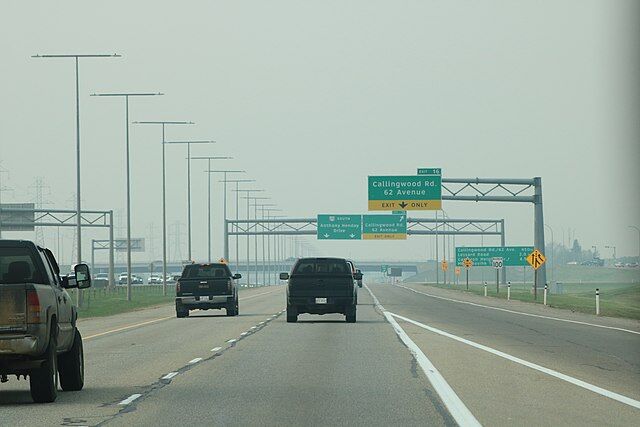Air Pollution Crisis: Canada's Wildfires Impact Air Quality Across North America
Canada is experiencing its most destructive wildfire season on record, as hundreds of blazes burning from coast to coast continue to send tremendous plumes of smoke into the atmosphere. Thick bands of soot and smoke particles captured over the last month by satellite images showed the extent of the air pollution traveling south over the Canadian border and into the United States, producing hazy skies and triggering air quality alerts across parts of the country. In late June, the smoke plume stretched as far as Europe.
Canada is currently facing its most severe wildfire season ever recorded, with numerous fires spreading from one end of the country to the other, releasing massive amounts of smoke into the atmosphere. Recent satellite images have revealed dense layers of soot and smoke particles, indicating the significant air pollution moving southward across the Canadian border and reaching the United States. This phenomenon has resulted in hazy skies and triggered air quality alerts in various regions of the US. Remarkably, the smoke plume even extended as far as Europe by the end of June.
Typically occurring between May and October, Canada's wildfire season is a regular event due to the country's substantial forest coverage, which accounts for approximately 9% of the world's forests. However, the extent of devastation witnessed at the beginning of this year's season immediately set the stage for one of the worst seasons in over three decades. Wildfires, spreading uncontrollably, have emerged in almost every corner of Canada, leading to the evacuation of thousands of individuals. A regularly updated map from the Canadian Interagency Forest Fire Centre demonstrates the widespread nature of these wildfires. Eastern provinces such as Quebec, Ontario, and Nova Scotia have experienced particularly severe and occasionally unmanageable fires.
As of Wednesday, Quebec reported the highest number of active fires, with 113, a decrease from the previous day's count of 117. British Columbia, located along Canada's west coast, ranked second with 94 active blazes, down from 99 the day before. Alberta and Ontario followed suit. The ongoing Canadian wildfires, which have been raging for two months, have had a devastating impact on air quality throughout North America, prompting warnings from Ontario to Georgia in the United States. Cities such as Chicago, Detroit, and Cleveland have experienced some of the most severe conditions within the country, while Toronto has recorded the poorest air quality among major cities worldwide.
The smoke is also causing disruptions in Europe, with Portugal and Spain seeing some effects on air quality. President Joe Biden witnessed the smoky conditions firsthand in Chicago, where he touched down on Air Force One. As the wildfires continue to burn, people across North America are being advised to stay indoors and limit outdoor activity in order to protect their health. The wildfires and the devastation being caused is unprecedented and unseen. Such incidents must act towards sensitizing the the developed global north even more for acting swiftly against climate change and global warming.




